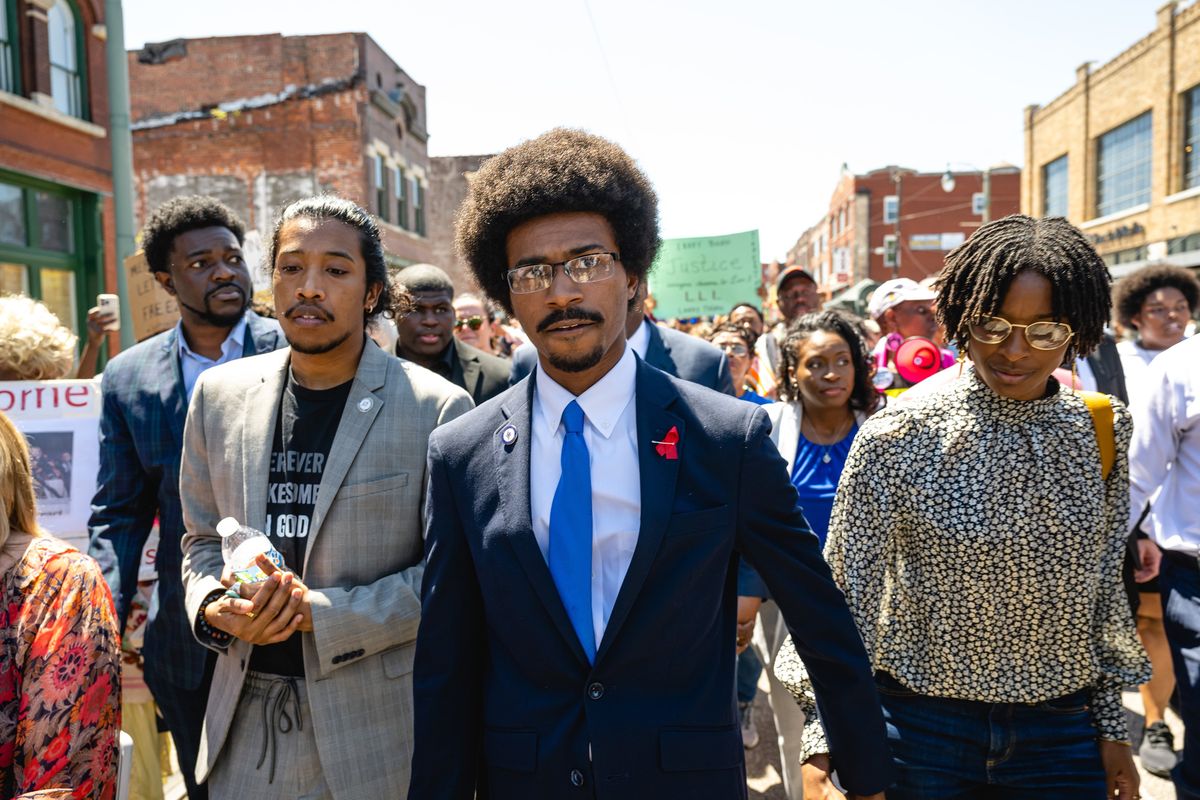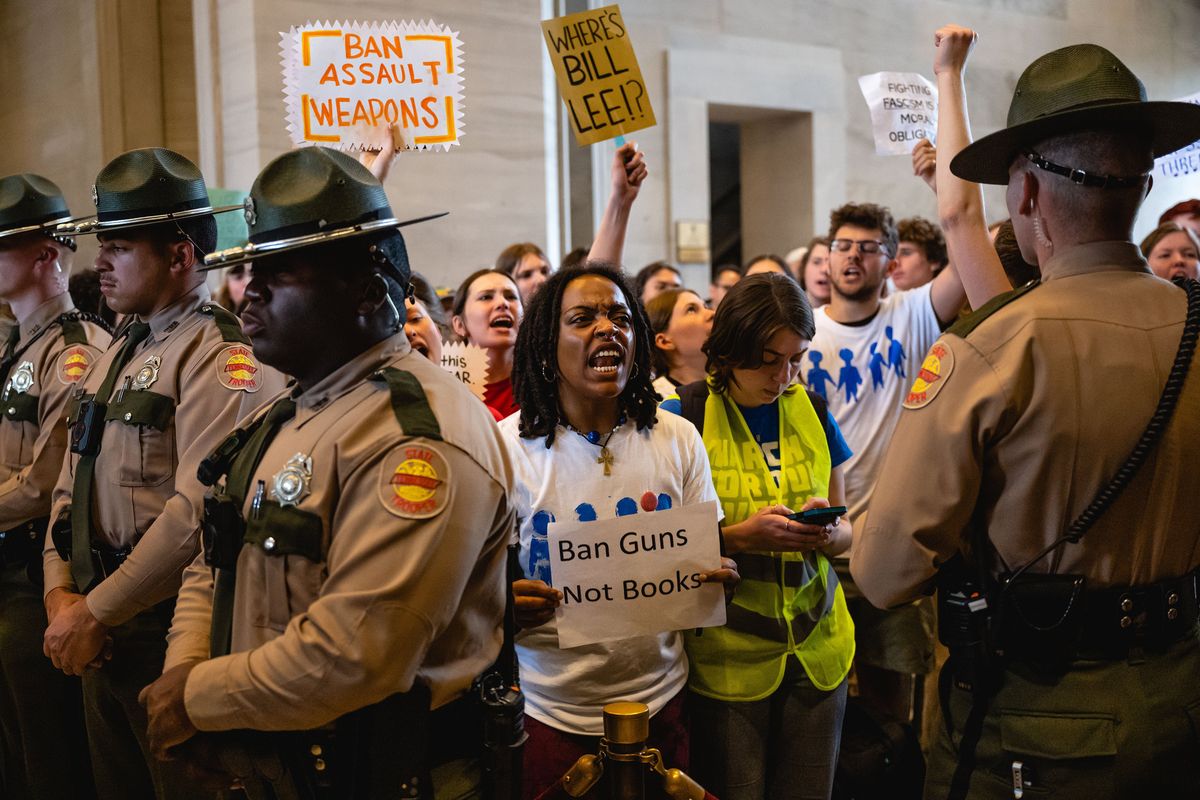Tennessee GOP cuts session short with no action on gun control
State Rep. Justin J. Pearson, center, who was briefly ousted from the Legislature by the GOP, marches with State Rep. Justin Jones, left, in Memphis, Tenn., on April 12. (JON CHERRY)
NASHVILLE, Tenn. – Hundreds of students, parents and teachers marched to the Tennessee State Capitol, day after day, demanding a ban on assault weapons and action on gun control. Their calls were echoed by musicians like Amy Grant and Sheryl Crow, who trekked to the legislature to personally lobby lawmakers after a mass shooting at a Nashville Christian school.
Several faith leaders joined the effort, writing to Republican leaders to urge them to support a proposal that would help temporarily restrict access to guns for people found by a court to be a danger to themselves or others.
But Friday, just under a month after the attack at the school, Republicans instead cut short the year’s legislative session and punted on any measure dealing explicitly with guns, capping a whirlwind three months of lawmaking that underscored the power of the far-right flank of the Republican Party in Tennessee and saw the brief expulsion of two Black Democratic lawmakers.
“It’s frustrating and motivating,” said Jamie Starnes, 37, who spent Friday morning protesting in the Capitol with a group of mothers. “We’re not going anywhere.”
Within two hours of the legislature’s hasty departure, the state’s Republican governor, Bill Lee, announced that he would summon lawmakers back for a special session to revisit the debate.
Lee had pushed the legislature to pass an order of protection law, which, in an effort to win conservative support, had become so limited in scope that some experts said it would not even qualify as the type of “red flag law” scorned by gun rights supporters.
“There is broad agreement that dangerous, unstable individuals who intend to harm themselves or others should not have access to weapons,” Lee said. “We also share a strong commitment to preserving Second Amendment rights.”
But it was clear as the legislature departed Friday that any measure that would limit access to guns, even one as narrow as the proposal championed by Lee, would face steep odds with the Republican supermajority.
Republicans panned that proposal and argued that they were too far into the session to examine the ramifications of such a law. Speaker Cameron Sexton suggested that Republicans would discuss other proposals that would “focus on the mental health aspect of this and just closing loopholes currently in the law.”
This article originally appeared in The New York Times.




